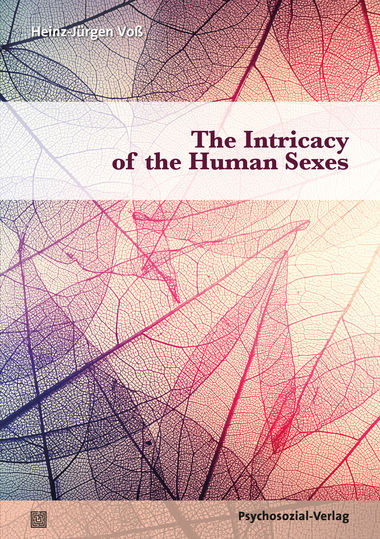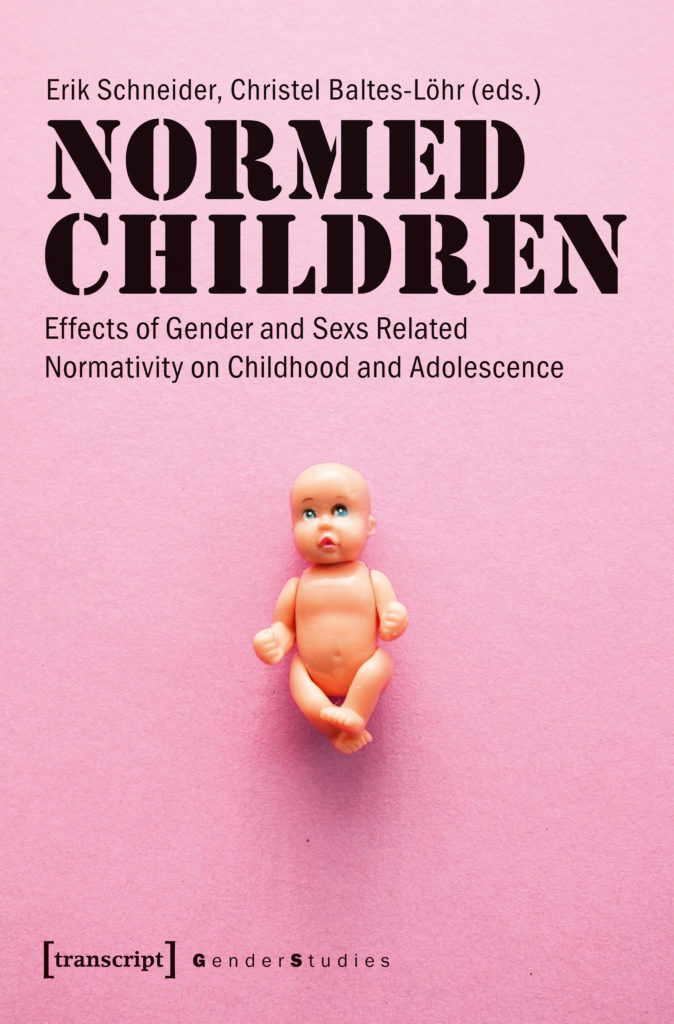Here you will find some English information about my research. For questions please send an e-mail to: voss@heinzjuergenvoss.de or contact me on Twitter: https://twitter.com/hjvoss .
Heinz-Jürgen Voß,
a biologist as well as a social scientist, completed his PhD on “Making Sex Revisited. Deconstruction of Sex froma Biological-Medical Perspective” (“Making Sex Revisited. Dekonstruktion des Geschlechts aus biologisch-medizinischer Perspektive”, 2010) and is currently holding a professorship in sexology and sexual education at Merseburg University of Applied Sciences while also leading the research project Protection of Children and Adolescents from Sexual Trauma (funded by the German Federal Ministry of Education Research) and the EU project TRASE (“Training in Sexual Education for People with Disabilities”). His_her publications include “Biological Sex: Against Naturelness” (“Geschlecht: Wider die Natürlichkeit”, 2011) and the edited volume “To Musicalize the Idea of Homosexuality. On the Topicality of Guy Hocquenghem” (“Die Idee der Homosexualität musikalisieren. Zur Aktualität von Guy Hocquenghem“, 2018).
The following texts are available in English:
[1] The Intricacy of the Human Sexes

Little defines human life more than the biological sexes. The concept of the binary sexes greatly affects our choices given in society, our income, and our visibility. Moreover, it is also the root for profound discrimination. Today, the idea that the binary sexes are nature-given is so intrinsically woven into the fabric of human life that we tend to forget just how modern the concept is. We also tend to forget that it does not have to be more than a bump on the path to a just society.
Drawing from philosophical, historical, and biological perspectives, the author challenges existing beliefs in the inevitability of the binary nature of the human sexes. The study compellingly argues for the existence of many biological sexes, not merely two. It also outlines just how otherwise overcome assumptions still shape our seemingly modern understanding of the most basic classification of our societies: that of the biological sexes and the attributes piled upon them.
Heinz-Jürgen Voß
The Intricacy of the Human Sexes
Nov. 2021, 171 p., 19,90 Euro (Print)
For more information see: https://www.psychosozial-verlag.de/3121
The Open Access version you will find here: https://www.psychosozial-verlag.de/7806
[2] English Translation of the Introduction to the Book “Making Sex Revisited: Deconstructiong Sex/Gender from a Biological and Medical Point of View”
You will find the introduction for free download here: Download.
Short description: Judith Butler once critiqued binary approaches to biological sex on the level of the interpretation of signs, thus avoiding a discussion of actually existing organic structures and their possible binarity. By contrast, the following contribution is concerned with historical and contemporary biological theories about such structures. Tracing theories of preformation and epigenetics, “Making Sex Revisited” demonstrates that a focus on processes of evolution and differentiation leads to pluri-sexual approaches to biological sex. Organic structures develop individually and vary when various individuals are compared. The predominance of binary interpretations results from the distinction between two sexes and their unequal treatment, still prevalent in society.
German full text version: Making Sex Revisited: Dekonstruktion des Geschlechts aus biologisch-medizinischer Perspektive. Bielefeld: Transcript Verlag. 2010, 3rd ed. 2011. Open Access: http://dx.doi.org/10.14361/9783839413296 .
[3] English Translation of the Book “Queer and (Anti)Capitalism”

The book “The Queer Intersectional in Contemporary Germany: Essays on Racism, Capitalism and Sexual Politics” (ed. by Christopher Sweetapple), with contributions by Judith Butler, Zülfukar Çetin, Sabine Hark, Daniel Hendrickson, Heinz-Jürgen Voss, Salih Alexander Wolter and Koray Yılmaz-Günay, includes the English translation of: Heinz-Jürgen Voss & Salih Alexander Wolter, “Queer and (Anti)Capitalism”.
The Open Access Version of the book will be available for free: Download (PDF).
Psychosozial-Verlag, Gießen
2018, 208 Seiten, 26,90 Euro
ISBN: 978-3-8379-2840-2
Open Access Download: https://doi.org/10.30820/9783837974447 (Link)
[4] Some further book chapters are also available in English:

Voß, Heinz-Jürgen (2019, German version 2014): Determining Sex/Gender: Genes and DNA Precisely Do Not Predict the Development of a Genital Tract… In: Schneider, Erik / Baltes-Löhr, Christel (eds.): Normed Children: Effects of Gender and Sex Related Normativity on Childhood and Adolescence. Bielefeld: Transcript, pp.137-154. (information)
Voß, Heinz-Jürgen (2018): ‘Musicalizing’ Sexual Orientation: On the Possibilities of Non-Identification and Openness. In: Mercer, Milena; Kunstpalais Stadt Erlangen (ed.): altered states: Substances in Contemporary Art. Hatje Cantz. p. 304-311. (information)
[5] TRASE – Training in Sexual Education for People with Disabilities (EU, Erasmus+)
TRASE is a project funded by the European Commission’s Erasmus+ programme. The project aims at devising a course to train those delivering sexual education to persons with learning difficulties. It follows on from the outcomes of the SEAD project (Sexual Education for Adults with Disabilities), which developed tools and materials for sex education in cooperation with people with disabilities. TRASE therefore seeks to develop and evaluate how best to use adapted and creative tools to maximise the engagement and understanding of persons with learning difficulties. This ultimate objective is to empower them by giving them access to essential information about sex, sexuality and relationships.
Professionals agree that a training course is necessary for people who conduct sexual education for people with intellectual disabilities. TRASE offers a stepping stone in giving Europeans with learning disabilities the possibility to make informed personal choices, including the choice to engage in romantic relationships, get married and start a family.
Article 23 of the United Nations Convention on the Rights of Persons with Disabilities (UN CRPD) provides that people with learning disabilities have a right to “found a family”, “freely decide on the number and spacing of children” and “retain their fertility on an equal basis with others”. Furthermore, Article 25 on Health, upholds that “free and informed consent” must be the basis of providing healthcare, including reproductive health.
Hochschule Merseburg, University of Applied Sciences (Germany) is the leading organization (Project manager: Prof. Dr. Heinz-Juergen Voss; Project coordinator: Lena Lache). The TRASE partners are the following: Autism-Europe (Belgium), Agrupamento de Escolas de Oliveira do Bairro (Portugal), Kauno neigaliojo jaunimo uzimtumo centras (Lithuania), ELearning Studios (United Kingdom), Université de Luxembourg (Luxemburg), Institute for Sex Education Vienna (Austria).
To find out more, visit the TRASE project website by clicking here.